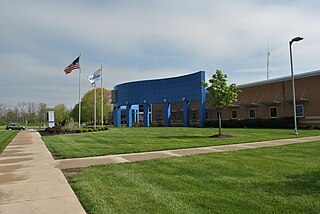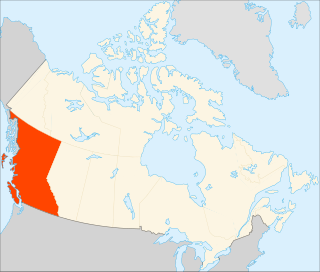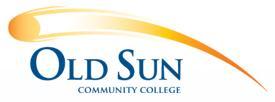Columbia College is a vocational education institution located in Calgary, Canada, offering certificate and diploma qualifications in a range of subjects. Government-funded scholarships are offered to students without the means to pay the fees.
Columbia College is a vocational education institution located in Calgary, Canada, offering certificate and diploma qualifications in a range of subjects. Government-funded scholarships are offered to students without the means to pay the fees.
Established in the late 1980s, the college was originally known as "Columbia Institute of Canada". Founded by Tom and Nola Snell the school opened with a small range of programs primarily aimed at helping local disabled individuals sustain employment and upgrade their existing education. Over the years the College has expanded its programs to include a variety of professional programs in addition to its roots in Academic Upgrading and English as a second language.
Columbia offers both one-year certificate programs and two-year diploma programs. Some two-year academic diplomas can be completed in as few as 12 calendar months.
Columbia College provides accelerated adult education programs. Students can complete up to one academic year of post-secondary education during every six months they attend Columbia College.
In 1998 the College created The Columbia Learning Society to raise money in order to provide scholarships to learners in financial need who wish to attend the College. The society received authority from the Canadian government in the winter of 2002 to issue tax deductible receipts for donations. Columbia College continues to make a substantial donation each year to the society, enabling it to hire staff and offer educational scholarships for free courses to adult learners in need. The society also offers educational scholarships for free weekend tutoring sessions to young children. Since 2002 the society has provided scholarships (valued at $240,000) to over 1,100 learners.

A community college is a type of undergraduate higher education institution, generally leading to an associate degree, certificate, or diploma. The term can have different meanings in different countries: many community colleges have an "open enrollment" for students who have graduated from high school. The term usually refers to a higher educational institution that provides workforce education and college transfer academic programs. Some institutions maintain athletic teams and dormitories similar to their university counterparts.

A student is a person enrolled in a school or other educational institution.

Education in Canada is for the most part provided publicly, and is funded and overseen by provincial, territorial and local governments. Education is within provincial jurisdiction and the curriculum is overseen by the province. Education in Canada is generally divided into primary education, followed by secondary education and post-secondary. Within the provinces under the ministry of education, there are district school boards administering the educational programs.

A vocational school, trade school, or technical school is a type of educational institution, which, depending on the country, may refer to either secondary or post-secondary education designed to provide vocational education or technical skills required to complete the tasks of a particular and specific job. In the case of secondary education, these schools differ from academic high schools which usually prepare students who aim to pursue tertiary education, rather than enter directly into the workforce. With regard to post-secondary education, vocational schools are traditionally distinguished from four-year colleges by their focus on job-specific training to students who are typically bound for one of the skilled trades, rather than providing academic training for students pursuing careers in a professional discipline. While many schools have largely adhered to this convention, the purely vocational focus of other trade schools began to shift in the 1990s "toward a broader preparation that develops the academic" as well as the technical skills of their students.

The Miami Valley Career Technology Center (MVCTC) is a public career technology school in Englewood, Ohio. It serves five southwestern Ohio counties. Prior to 1994, it was known as the Montgomery County Joint Vocational School.
North Island College (NIC) North Island College (NIC), is a community college located primarily on Vancouver Island, British Columbia, Canada.

Okanagan College is a public, post-secondary institution with over 120 certificates, diplomas, degrees and programs including apprenticeship and pre-apprenticeship trades programs. Its largest campus is located in Kelowna, British Columbia, Canada. Established in 1963, Okanagan College has since grown to be the largest college in British Columbia outside the Lower Mainland and Victoria with roughly 5,000 full-time students on four regional campuses and is the second-largest trade school in British Columbia. 1,885 international students from over 40 countries studied at Okanagan College in 2022-23, comprising 11% of total student headcount. The College once had one of the fastest growing populations of Aboriginal students of any college in the province; in the 2015-16 academic year Okanagan College delivered educational programming to 1,680 Aboriginal students. However, the growth did not continue, in 2021-22 the Indigenous student headcount remained at 1,690.

Bow Valley College is a Canadian public, board-governed college located in Calgary, Alberta, operating as a comprehensive community institution under the Post-Secondary Learning Act of Alberta. The branch campuses are: Airdrie, Banff, Cochrane, Okotoks, and Strathmore. Bow Valley College is a member of the Alberta Rural Development Network and Colleges and Institutes Canada.

Northwestern Polytechnic (NWP), formerly known as Grande Prairie Regional College (GPRC) is a polytechnic in northwestern Alberta, Canada. The college's main campus is located in Grande Prairie, with a secondary campus in Fairview, and many of its courses are offered online. Alberta's newest polytechnic offers a number of apprenticeship and academic programs including degrees, certificates and diplomas, university transfer studies, academic upgrading, and continuing education courses in various subjects. NWP is a member of the Alberta Rural Development Network.

NorQuest College is a publicly funded community college in Edmonton, Alberta, Canada. The student body is approximately 10,900 full-time or part-time credit students, and approximately 8,500 non-credit or continuing education students. Approximately 1,600 students graduate each year.

Higher education in British Columbia is delivered by 25 publicly funded institutions that are composed of eleven universities, eleven colleges, and three institutes. This is in addition to three private universities, five private colleges, and six theological colleges. There are also an extensive number of private career institutes and colleges. Over 297,000 students were enrolled in post-secondary institutions in British Columbia in the 2019-2020 academic year.


Old Sun Community College is a community college owned and operated by First Nations that provides post-secondary education and training in Siksika 146, Alberta, Canada to members of the Siksika Nation.

Maskwacis Cultural College (MCC) is a private post-secondary institution within the Four Nations of Maskwacis, Alberta, Canada. MCC offers programs from basic adult literacy, two-year college diplomas, to university transfer programs.

Anishinabek Educational Institute (AEI) is an Aboriginal-owned and controlled post-secondary institution in Canada. Aboriginal institutes partner with colleges and universities to offer students degree programs, apprenticeships, certificate programs and diploma programs. AEI was founded to provide greater access to post-secondary education for Aboriginal peoples. AEI delivers post-secondary programs approved by the Ministry of Training, Colleges and Universities. The educational curriculum was adapted to meet the needs of Aboriginal learners to ensure it reflects community needs, cultural heritage and identity.

Seven Generations Education Institute is an Aboriginal-owned and controlled post-secondary institution, co-founded by the ten bands in the Rainy Lake Tribal area in 1985. The ten bands are: Big Grassy, Big Island, Couchiching, Lac La Croix, Naicatchewenin, Nigigoonsiminikaaning, Ojibways of Onigaming, Rainy River, Seine River and Mitaanjigamiing. Each of the bands appointed one member to the board of directors of Seven Generations Education Institute, which functions with the leadership of the Executive Director.

Iohahi:io Akwesasne Education & Training Institute is an Aboriginal-owned and controlled post-secondary institution for the Mohawks of Akwesasne.

Monsignor Fraser College is a Roman Catholic specialized dual-track Alternative and Adult Secondary School run by the Toronto Catholic District School Board in Toronto, Ontario, Canada. The school was named in honour of John Andrew Mary Fraser', the founder of the Scarborough Foreign Mission Society and a missionary.
A high school diploma is a diploma awarded upon graduation of high school. A high school diploma is awarded after completion of courses of studies lasting four years, typically from grade 9 to grade 12. It is the school leaving qualification in the United States and Canada.

The Open Learning Institute of British Columbia (OLI) was a single mode, distance education post-secondary provincial institute in Canada, created in 1978 by the Government of British Columbia. Its mandate was to improve access to higher education across the province by means of distance education and other open learning methods. Inspired in part by the UK Open University model, it used a combination of print-based courses, audiovisual media and telephone tutoring to offer courses up to the baccalaureate degree level. In 1988, it was subsumed in part as the BC Open University under the new Open Learning Agency (OLA). In 2005 it was amalgamated as the Open Learning Division with the newly designated Thompson Rivers University in Kamloops (TRU), BC. TRU was formerly known as the University College of the Cariboo.